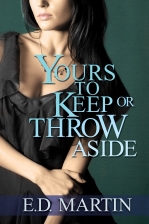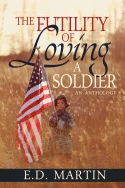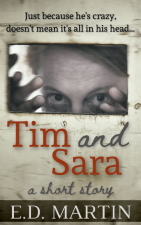 The books: The Age of Innocence and The House of Mirth by Edith Wharton
The books: The Age of Innocence and The House of Mirth by Edith Wharton
The music: “Ísjaki” by Sigur Rós and “Intro” by The XX
The books
The Age of Innocence has been one of my favorite books since I first read it 15+ years ago. I’ve been slowly working my way through Wharton’s stories and novels, and last spring I went on a Wharton binge (I stayed at a little cabin I had to hike half a mile to, right on Lake Superior, and spent several days lying on a bunk next to a wood-burning stove just reading. It was heaven) that included Ethan Frome and The House of Mirth. Unrelated to this post, why does everyone hate Ethan Frome? It has such a wonderfully tragic ending.
Anyways. Lily Bart became one of my favorite characters, because her story is so tragic as well.
If you don’t know the plot of either of them, The Age of Innocence is about Newland Archer, who’s engaged to deceptively naive May Welland. He meets her cousin Ellen Olenska, who is *gasp* separated from her husband! This is late 19th century New York high society and that kind of thing isn’t done. Ellen doesn’t care and does what she wants, much to the horror of her family and social circle. Newland realizes that high society is stupid and vapid and that he doesn’t particularly care for them either. He falls for Ellen in part because her DGAF attitude is such a contrast to May’s sincere desire to fulfill the role society tells her she should have. He’s prepared to dump May for Ellen, but May suspects this and tells Ellen she’s pregnant. Ellen runs away to Europe, and Newland lets her go in order to be the husband society wants him to be, even though he’s emotionally dead inside.
The book/film opens with them watching Faust, which is my third favorite opera, after Carmen and Evgeny Onegin.
The House of Mirth is similar. It’s about Lily Bart, a destitute late 19th century socialite who relies on the charity of her aunt. Lily is in her twenties and therefore practically ancient, so she’s getting a lot of pressure to marry the first guy she can snag. But all the guys are boring and stupid, except for her friend Lawrence Selden. Selden kinda strings her along as she muddles her way through friendships and semi-courtships. Her love for luxury leads her to a platonic financial relationship with a married guy, whose wife gets pissed and ruins Lily’s reputation. All Lily’s high society friends abandon her, and as she sinks through the ranks she eventually finds happiness as a lowly seamstress. Selden rushes to her apartment when he realizes just how bad off she is and what a jerk friend he’s been, except she accidentally OD’ed on sleep medication.
Lily is a combination of both May and Ellen. May knows how to play the game to get what she wants, and what she wants is exactly what society tells her she should have – a wealthy husband to pop out babies with, never concerning herself with anything more than managing her household and family. Ellen, in contrast, wants to do whatever she wants, and society is holding her back with her expectations. Lily tries to be like May, pretending to want a house to manage and a family to raise, when really she’s more like Ellen in that she wants to do what she wants regardless of what society dictates. The constrast, however, is that Ellen’s rich grandmother also thinks society is stupid and gives her enough money that she can live however she wants, without a husband to depend on. Lily, unfortunately, doesn’t have this, and so she has to make her own way in the world. Lily realizes that she can either be rich or have freedom, and as the story progresses, she goes from holding on to riches at all costs, to finding pleasure in simplicity and poverty. And then she dies.
Feminism
The role of feminism is obvious. Ellen would be okay in our modern era, because she’d be able to divorce her worthless husband and become a senator or lawyer or travel writer or something. Lily, born into a gilded life, would nonetheless have been able to get an education that would allow her to support herself without relying on her worthless husband. But because of society’s restrictions, being on their own isn’t a realistic option, unless they’re willing to face the stigma that comes with it. Ellen is, and so she’s rewarded – her grandma sees how happy she is when she DGAF and gives her money to live off of. Lily, however, refuses to take the plunge by telling everyone to F off, and she ends up poor. Perhaps if she had told them to F off sooner, she would’ve gotten a happy ending like Ellen’s. Instead, it’s only when she accepts that society is stupid and she’s better off without it that she finds peace. But then it’s too late, and she dies.
#MeToo
While Lily Bart has grown to become probably my favorite Wharton character after Newland (I really despised her when I first started reading the book, and it’s only in hindsight that I realized how awesomely done her complexity was), I’m not a fan of Lawrence Selden at all. I have to wonder, how complicit was he in her death? She wasn’t sexually assaulted, but her name was dragged through the mud when she was accused of having an affair with a married guy. None of her friends stood up for her, Selden included. He was removed a bit from society, in that he went to the parties but wasn’t really part of a high society family. As such, he had a lot more freedom to DGAF than most of the other characters, yet he still had clout with them. Kinda like the cool loner kid. Yet he didn’t speak up for Lily, even though they had feelings for each other. As I’m writing this I’m trying my hardest to avoid news about Kavanaugh’s confirmation hearing and sexual assault testimonies, and I can’t help but draw a parallel between Lily’s situation and his. Lily was accused of having an affair. No one spoke up to defend her innocence, even her closer friend, and she suffered because of this. Dr. Ford has spoken up about Kavanaugh’s sexual assault of her and however many other women have accused him, and no Republicans are defending her, and she and the whole damn country are suffering because of this. Maybe then Sen. Flake is the equivalent of Selden; he claims to be a champion of women’s rights, but he goes along with the status quo.
Which again comes back to the question: how complicit is Selden in Lily’s death? When we see injustices – whether it’s misogyny or bullying or maybe a coworker behaving in a harmful way – what obligation do we have to speak up? I know what my response is, but what happens when society is telling you to sit down and shut up, or you’re going to lose your status? Do you still expend your social capital, maybe risk friendships and relationships and your job, to speak out? I know what my answer is, and sadly I know what most people’s answers are. I know what Selden’s answer was, and it cost Lily her life.
The music
As you may have deduced from my rant above, the #MeToo movement, and especially every misogynist thing the current administration is doing, is a bit triggering for me. Yeah, I said triggering. The truth of the matter is, women are still at the mercy of a patriarchal society, and when we go against or speak against their norms there can be emotional consequences for it. So, the two songs for today are two that I use to calm down.
The first is by Sigur Ros, and the lyrics don’t even matter so much as the music. The chimes are great for deep breathing exercises; I’ve used them with clients as well as with myself.
The second is by The XX, a band YouTube suggested I listen to. This song is just very calming, and since it’s only 6-ish minutes long someone nicely made it into a 4 hour loop so you can listen to it forever to destress. You’re welcome.





